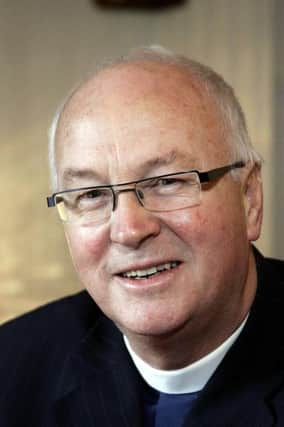Living for the faith is what matters


Amid news of terrorist attacks, and those fanatics who appear to embrace death, his word is relevant; ‘The mark of the immature man is that he wants to die nobly for a cause, while the mark of the mature man is that he wants to live humbly for one.’
The early Christians were not afraid of martyrdom. Stephen was stoned to death (Acts 7; 54-60), James was put to death with the sword (Acts 12;2) and Paul was executed under the demented Nero. Indeed, almost all Jesus band of twelve died for their faith, with Peter choosing to be crucified upside down (as in Caravaggio’s great painting),deeming himself unworthy to suffer in the same manner as his Saviour.
Advertisement
Hide AdAdvertisement
Hide AdFollowing such heroic examples, many early Christians positively invited martyrdom, calling it ‘their birthday’. Wiser head prevailed, arguing that while martyrdom may come, it should not be sought. For many Christians martyrdom has come, as in the case of the twenty Coptic Christians from Egypt, working in Libya, who were led out in their orange suits to be beheaded on the shore by bloodthirsty men who regarded them as infidels.
The novelist Thackeray anticipated Salinger. In his novel, ‘The history of Henry Esmond’, one character says ‘It’s not the dying for a faith that’s so hard, Master Harry - every man of every nation has done that - ’tis the living up to it that is difficult.’
The New Testament writers place the emphasis on living for the faith, to demonstrate its transformative power.
In what is perhaps the earliest Christian writing, the first epistle of Paul to the church in Thessalonica, Paul drew a contrast between unbelievers, those in darkness, and believers, those who knew the light of the gospel. He wrote: ‘You are all sons of light and sons of the day...So then, let us not be like others, who are asleep, but let us be alert and self-controlled...putting on faith and love as a breastplate, and the hope of salvation as a helmet.’(1 Thessalonians 5; 5-8).
Advertisement
Hide AdAdvertisement
Hide AdPaul was expanding on what Christ told his disciples in the Sermon ont he Mount, ‘You are the light of the world.....let your light shine before men, that they may see your good deeds, and praise your Father in heaven’ (Matthew 5; 14-16).
Yes, it’s living for the faith that matters.